However, to achieve sustainable and truly valuable achievements, experts say that special attention must be paid to academic integrity - the ethical foundation and standards in scientific research.
The game is not easy
According to Dr. Vu An Dan - Faculty of Tourism , Hanoi Open University, the two most important tasks of lecturers are teaching and scientific research. In particular, publishing works in prestigious international journals plays a special role, not only enhancing the reputation of scientists and training institutions, but also contributing to spreading knowledge to the community.
However, in order to be able to publish internationally, Dr. Vu An Dan believes that lecturers and researchers need to master the basic requirements of a scientific article. First of all, there must be a clear research question, demonstrating the necessity and contribution of the work. Next, the overview needs to point out the research gap to demonstrate the novelty of the topic. In addition, there must be a solid theoretical foundation and appropriate research methods. In particular, the results must be presented coherently, directly answering the research question posed.
Emphasizing that choosing a journal to submit articles to is a strategic step, Dr. Vu An Dan shared that each journal has its own scope, criteria and target audience. Therefore, researchers need to accurately determine the approach and quality of the work to make the appropriate choice. International publication is not only a measure of research capacity, but also a way to integrate Vietnamese knowledge into the global scientific flow. This is a responsibility and an opportunity for lecturers and researchers to affirm their position in an increasingly competitive academic environment.
According to Associate Professor Dr. Le Dinh Hai - University of Economics (Hanoi National University), international publication is not an easy "game", but it is completely feasible if researchers build systematic capacity, comply with academic standards, choose the right journal, write appropriately and persevere in the face of rejections.
However, to be successful, it is necessary to write according to international standards, use academic English, actively respond to criticism, and avoid journals with poor reputation and lack of transparency. In addition, academic ethics, international research cooperation and the development of a publication strategy, especially for beginners, are important foundations for asserting academic standing.
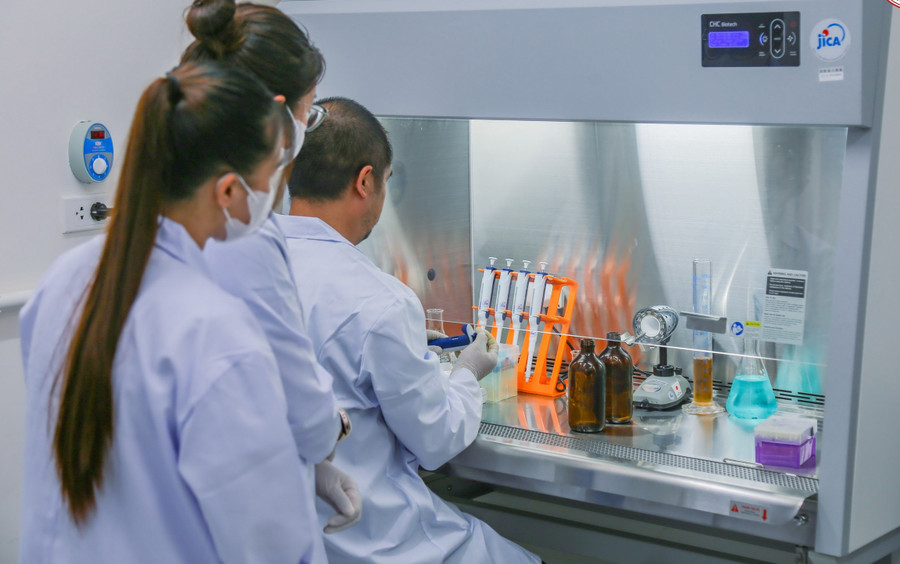
Adapting to artificial intelligence
Referring to the manifestations of violations of academic integrity, Associate Professor Dr. Mai Van Luu - Department of Examination and Quality Management, Hanoi Open University said that the most common behavior is plagiarism and self-plagiarism: Using ideas, data, research results of others without citing, or reusing one's own previously published work.
Some other violations are also worrying such as: Forging, distorting data to fit the hypothesis, ignoring unfavorable results; labeling "ghost" authors - people who did not participate in the research; lack of integrity in review such as: Revealing manuscripts, delaying review to compete, copying ideas. In addition, there is a situation of splitting up works to increase the number of publications, duplicate publications... These acts not only violate research ethics, but also reduce academic reputation, need to be strictly controlled and prevented.
From the above practice, Associate Professor Dr. Mai Van Luu recommends: Firstly, for individuals, each researcher needs to adhere to ethical principles, prioritize honesty, objectivity and transparency, and at the same time improve knowledge and research skills. Before publishing, it is necessary to carefully choose journals, avoiding publications that lack credibility.
Second, for training and research institutions, it is necessary to develop and implement a code of conduct on academic ethics, organize regular training and fostering, and make courses on research integrity mandatory. The scientific evaluation system needs to be reformed, focusing on quality and impact instead of quantity. In addition, it is necessary to develop an open science culture, encourage the publication and sharing of open data, improve the quality of criticism, strictly handle violations, and invest in a plagiarism checking system.
Third, learners need to proactively learn and comply with academic integrity regulations, cite documents properly, and avoid cheating in their studies. Universities must strengthen supervision, apply multiple exam codes, innovate assessment and testing, and effectively disseminate integrity regulations to students.
According to Associate Professor Dr. Mai Van Luu, academic integrity is a shared responsibility of lecturers, researchers, students and management institutions. Only when it is given top priority and protected by a strict system, can the academic environment be truly clean and healthy.
Referring to the responsible use of AI in training and scientific research at higher education institutions, Dr. Le Duc Trong - Faculty of Information Technology, University of Technology (Vietnam National University, Hanoi), said that it is necessary to innovate methods, and cannot use "old tools" for new contexts. Quality assurance is not only about control, but also about nurturing the thinking and ethics of learners.
In addition to soon issuing guidelines for using AI in teaching and research, Dr. Le Duc Trong recommended that schools need to adjust and update testing and assessment methods to suit the AI context. At the same time, it is necessary to include content to raise awareness and skills for responsible use of AI in the training program. “AI is both a challenge and an opportunity, requiring higher education to adapt flexibly to promote technological values while maintaining a solid academic and ethical foundation,” Dr. Le Duc Trong emphasized.
According to the Ministry of Education and Training, in 2022, the country had 18,441 articles published in Scopus publications; in 2023, it was 19,441 articles; as of July 2024, it reached 12,567 articles. This result shows that the international publications of the Vietnamese higher education system in recent years have maintained a steady upward trend, in which universities play a leading role.
Source: https://giaoducthoidai.vn/khong-the-thieu-liem-chinh-hoc-thuat-post744526.html


![[Photo] Binh Trieu 1 Bridge has been completed, raised by 1.1m, and will open to traffic at the end of November.](https://vphoto.vietnam.vn/thumb/1200x675/vietnam/resource/IMAGE/2025/10/2/a6549e2a3b5848a1ba76a1ded6141fae)














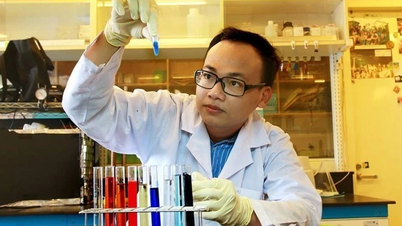




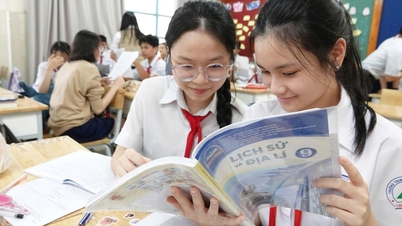
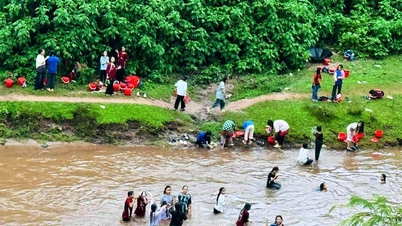


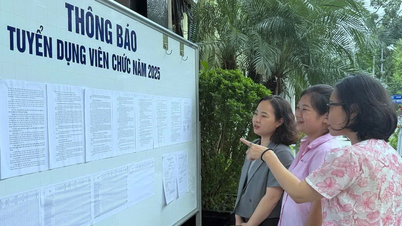





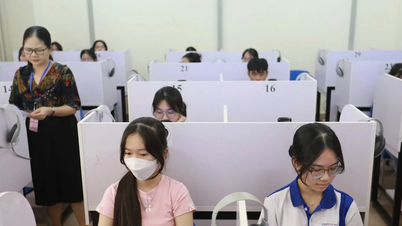
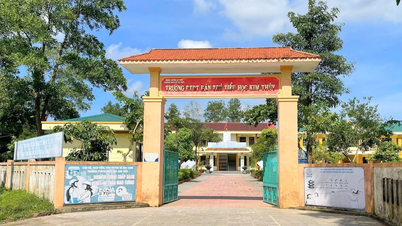
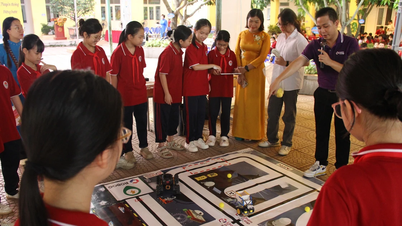
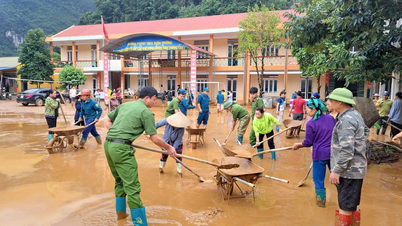












































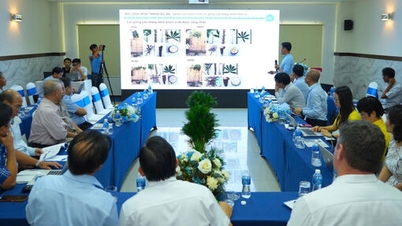

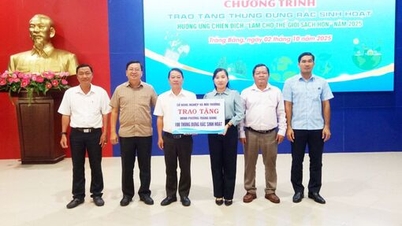
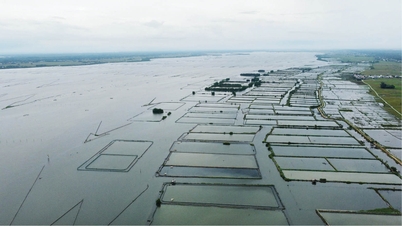



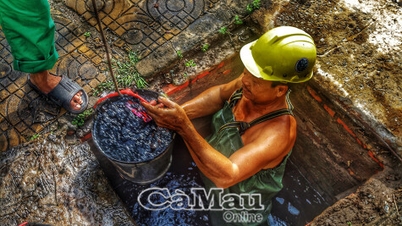
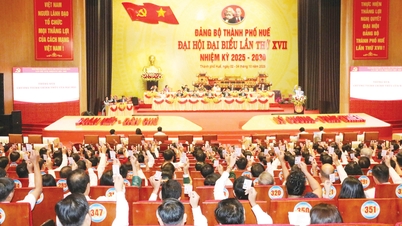













Comment (0)